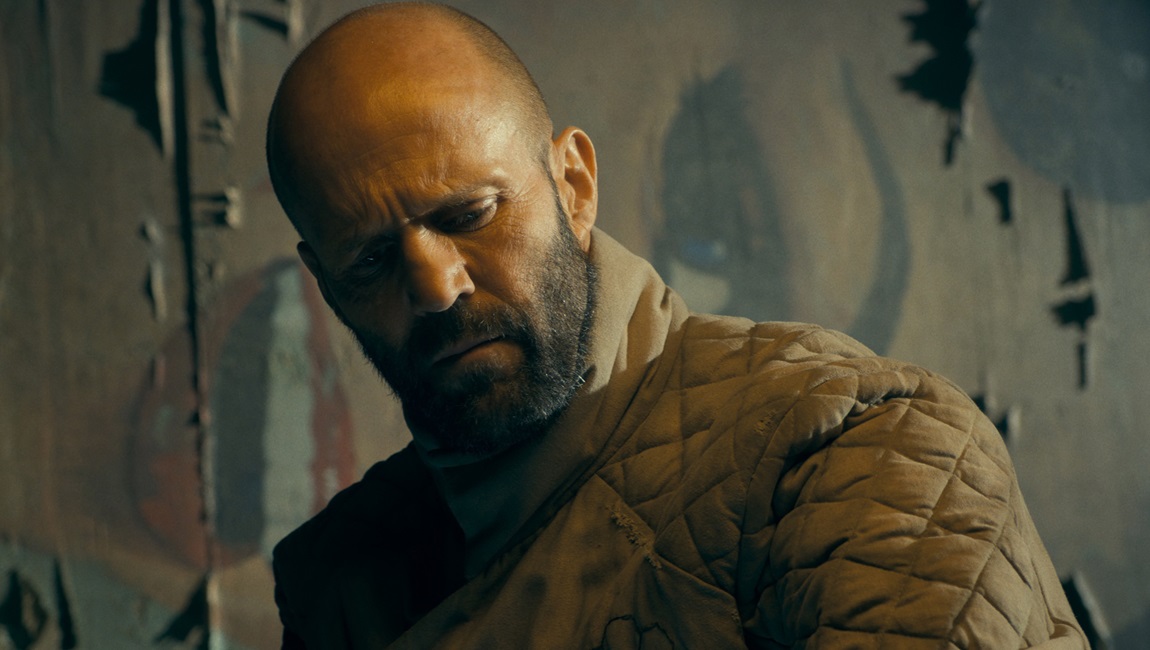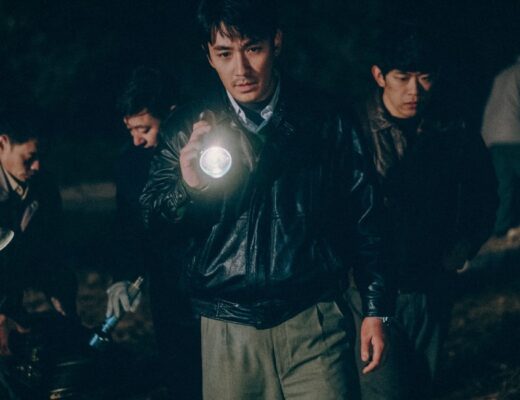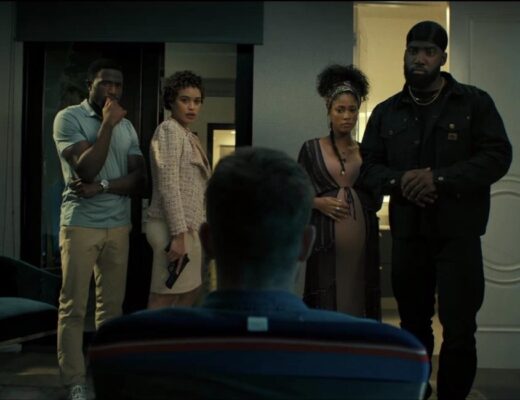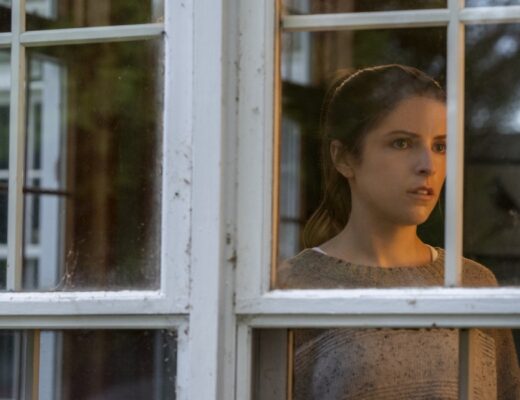It’s widely understood that most action movies have a somewhat reactionary bent to them — shoot first and ask questions later is both the guiding principle of many of these films as well as the unofficial motto of the NRA — and enjoying them as a liberal requires some amount of compartmentalization. One can look past the fetishization of guns and the elevation of vigilantes (always framed as one good person pushed into reluctant service by an uncaring world, never a lone nutter with an ax to grind) and extrajudicial violence provided that the gunplay and bone-breaking scratches a formalist itch — be that balletic fight choreography or editing that pushes the subject matter toward abstraction — or that the rush of violence itself complicates or even indicts the viewer in some constructive way. And most importantly, that the film doesn’t rub our noses in exactly how much it’s empathizing with the sort of meatheads in high school who used to dunk people’s heads in the toilet. That makes David Ayer’s The Beekeeper a particularly difficult sit. On its face, the film is no different than a dozen other interchangeable Jason Statham shoot-‘em-ups where the bullet-headed Brit lays beatdowns on waves of combatants while growling quips. Yet Ayer, a filmmaker who has dedicated much of his career to valorizing rogue authority figures (police officers especially) that operate in the moral gray area in order to “keep the public safe,” has moved beyond copaganda to make something where our scowly hero confronts the true boogeymen of our times: annoying millennials, call centers, political cronyism, and the awful adult children of those in power. Come for the eye-rolling, bee-centric puns and severed carotid arteries, stay for the salvo in the cultural war which feels like 4chan sprung to life. Or better yet, don’t.
Statham stars as Adam Clay, introduced in full beekeeper suit while removing a pesky hornet’s nest from a barn at the urging of his landlord, the kindly Mrs. Parker (Phylicia Rashad). Statham, who can be charming and even a little impish in the right role, plays Clay as taciturn and morose. He’s the sort of person who responds to an offhand invitation by Mrs. Parker to join her for dinner by solemnly replying, almost exclusively for the audience’s benefit, that she’s the only person who’s ever taken care of him (on the plus side, even his method of disposing of the hornets is pretty righteous; it involves a broken fluorescent light bulb and a taser). The retired Adam tends to his bees on a small corner of Mrs. Parker’s sprawling farm, processing honey in one of her barns and, despite his grave disposition, doesn’t have any greater bothers or concerns. That is, until Mrs. Parker finds herself caught up in an elaborate, well financed phishing scam where the elderly woman unwittingly allows a smug con artist (David Witts, strolling through a neon-lit boiler room filled with shark-like 20-somethings like an off–brand Jordan Belfort) to remotely get access to her computer, zeroing out all of her bank accounts, including the children’s charity she administrates. Despondent and ashamed, she kills herself, leaving both Adam and her dogged FBI agent daughter Verona (stage actress Emmy Raver-Lampman) seething and searching for somebody to hold accountable.
As it turns out, Adam being a beekeeper has more than one meaning. In the parlance of the film, the “beekeepers” are a covert paramilitary group existing outside the chain of command to reimpose order when all other safeguards fail; the sort of organization that nobody officially acknowledges, but whose members are described in such fear-inspiring terms it makes John Wick sound like a peacenik with a squirt gun (at one point a room full of tough hombres, ex-Navy SEALs and Delta Force memebers are told by the former director of the CIA that they are by comparison “pussies” next to the likes of Statham). Armed with nothing more than two canisters of gasoline and a surly disposition, Adam strolls into the illegal call center, takes out half a dozen security guards, chastises a room full of predatory, barely-grown data miners, and turns a $30 million building into a smoldering hole in the ground. This understandably kicks over a hornet’s nest (of the metaphorical variety), as the data farm is overseen by Derek Danforth (Josh Hutcherson), an obnoxious nepo baby with a coke habit, trading on his family’s name to enrich himself. The film is drawing a forehead-slapping parallel to real life — the full extent of which isn’t revealed until later in the film — although exactly who this large adult son is meant to represent likely qualifies as a political Rorschach test. Regardless, Derek sets in motion a war of escalation, sending dozens of soldiers of fortune after Adam, who demonstrates a knack for dispatching interchangeable goons in graphically violent fashion, all without ever having to pick up a gun. Soon, he is hot on the heels of Derek and any of his powerful friends standing in the way of vengeance, with a conflicted Verona only a few steps behind and trying to put an end to the death and destruction.
It needs to be acknowledged how stupid the entire beekeeping conceit is. Statham tending to bees as a hobby — not an especially subtle way of disguising his former job, that — should have been the end of it, but instead the film is positively lousy with inane bee metaphors. Adam views himself in terms of “protecting the hive,” he “smokes out” threats, the character is compared to a worker bee toiling away until he drops dead, much is made of the ominous sounding notion of a “queen killer,” and on it goes. It’s the sort of film where a hardened mercenary actually says, “to bee or not to bee,” and Statham’s character uses a jar of homemade honey as a deadly weapon (according to the film, it’s “flammable as fuck”). And to what end? To briefly introduce a network of eccentric, omnipresent assassins, only to abandon the idea after a single scene (or maybe just to explain why Statham’s character is good at punching people)? It’s reflective of the entire caught-between-stations nature of the film, which can’t decide whether to wholly embrace cartoonish exaggeration — the film’s color scheme employs more hot pink than any film since Barbie — or to try and say something of substance about exploiting the most vulnerable segments of the population, the intersection of money and politics, and the government violating civil liberties for personal gain. The film gets so far afield of its payback for sweet old Mrs. Parker plot, tying itself into knots with its incoherent politics and fever dream conspiracy theories, that by the end we have Adam taking on the Secret Service and on the precipice of destabilizing the U.S. government, all to kill a skateboarding pipsqueak you could knock over with a feather. The film completely loses the thread with Statham choosing to infiltrate a fortified estate rather than wait a few days and simply snatch up his prey when he’s out buying a poke bowl or something. It all would be comically hyperbolic if anyone involved with the film had a sense of humor.
Which brings us to the film’s director, David Ayer. Few in the film industry have failed up quite like Ayer, who has a CV that includes both Suicide Squad (that would be the putrid first one with Jared Leto, not the moderately tolerable yet confusingly named follow-up The Suicide Squad) and the Netflix-produced cops-and-orcs parable Bright. What most defines Ayer’s work as a filmmaker, beyond sucking up to the police and military, is his deadly self-seriousness. The director only makes one kind of film: aggressive, roided-out works where alpha men demonstrate their dominance through cruelty. It’s a sensibility which arguably suits a film like this, but there seems to be something more personal motivating The Beekeeper. It spares no opportunity to indict bird-like young men — eating gourmet sushi at the office and camped out behind computer monitors, outsourcing their problems to hired help and hiding behind mommy and daddy — and pits them against a pickup-driving manly man who works the land. Ayer, himself no shrinking violet on social media, has made a film which is the equivalent of watching a brute jock shoving nerds into lockers, which, more than being petty, is just kind of dull. The Beekeeper is far from the first action movie to pump up its protagonist to such mythical levels of badassery that it becomes anti-drama, but usually the physical disparity between the good guys and the bad guys isn’t this skewed. Finally, a film for people who watched The Social Network and wished it were about the Winklevii pummeling Mark Zuckerberg.
DIRECTOR: David Ayer; CAST: Jason Statham, Emma Raver-Lampman, Josh Hutcherson, Jeremy Irons; DISTRIBUTOR: Amazon MGM Studios; IN THEATERS: January 12; RUNTIME: 1 hr. 45 min.







